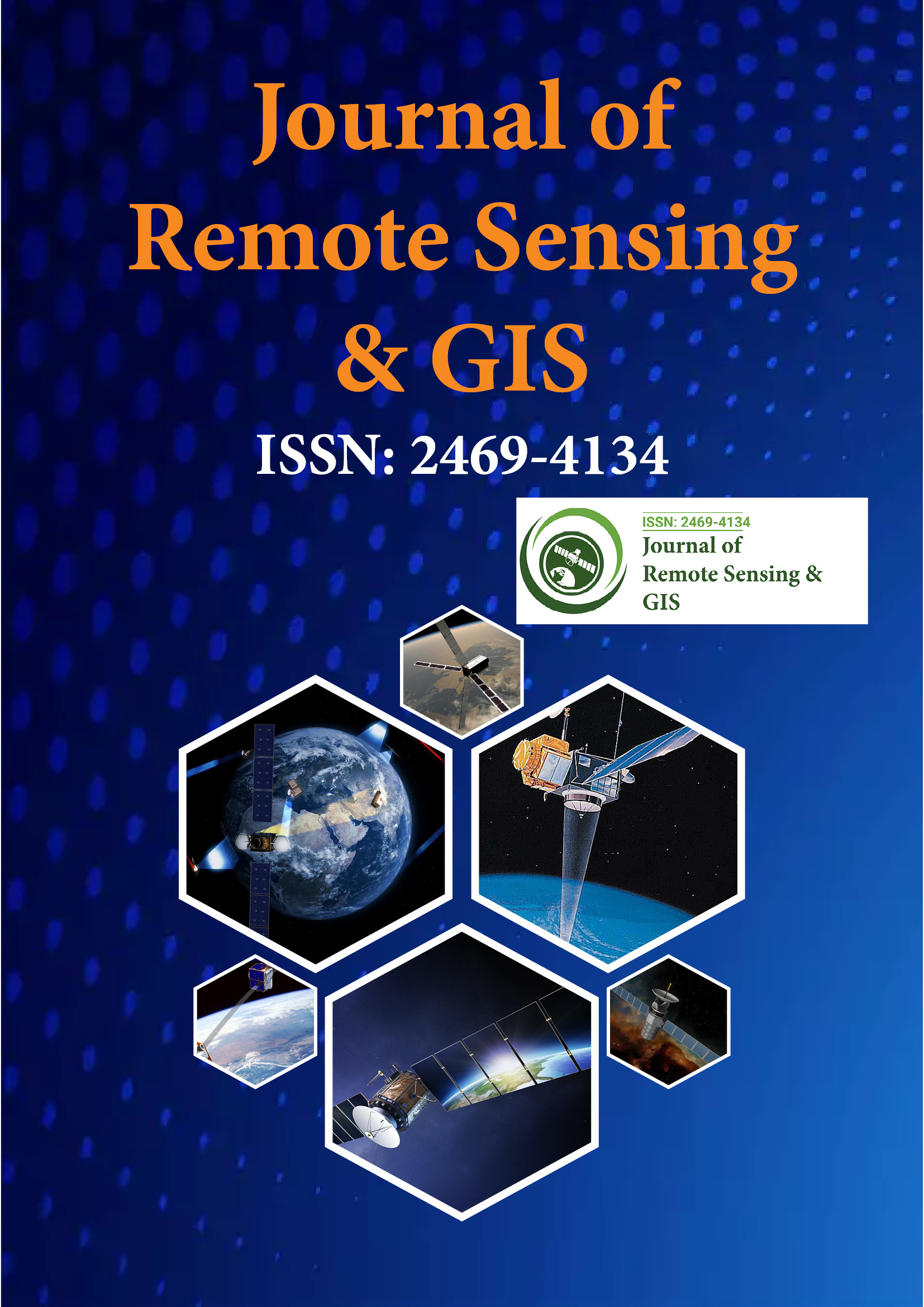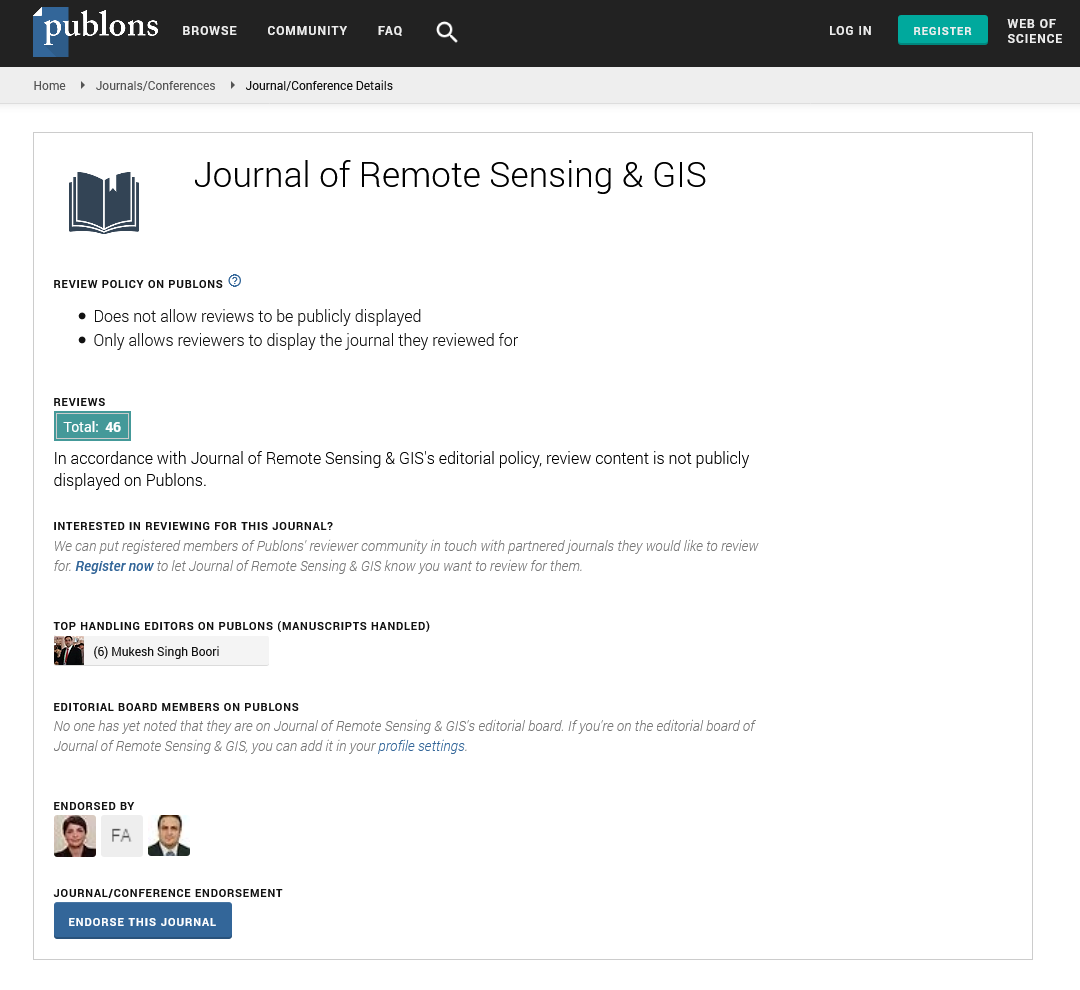Indexed In
- Open J Gate
- RefSeek
- Hamdard University
- EBSCO A-Z
- OCLC- WorldCat
- Publons
- International Scientific Indexing
- Euro Pub
- Google Scholar
Useful Links
Share This Page
Journal Flyer

Open Access Journals
- Agri and Aquaculture
- Biochemistry
- Bioinformatics & Systems Biology
- Business & Management
- Chemistry
- Clinical Sciences
- Engineering
- Food & Nutrition
- General Science
- Genetics & Molecular Biology
- Immunology & Microbiology
- Medical Sciences
- Neuroscience & Psychology
- Nursing & Health Care
- Pharmaceutical Sciences
Selection of parameters for automatic switch between linear and nonlinear spectral unmixing of hyperspectral data
Joint Event on 3rd International Convention on Geosciences and Remote Sensing & Geochemistry, Environmental Chemistry and Atmospheric Chemistry
October 19-20, 2018 | Ottawa, Canada
Asmau Mukhtar Ahmed
Kingston University London, England
Posters & Accepted Abstracts: J Remote Sensing & GIS
Abstract:
Spectral unmixing is the process of identifying the constituent spectra of the mixed pixel, also called endmembers and computing the corresponding proportions or abundances within each pixel in a given image. Many spectral unmixing methods have been proposed in the literature based on linear or nonlinear models. The linear model is usually adopted providing that the mixing process occurs at the macroscopic level and that photons interact with a single material before reaching the sensor. When those assumptions do not hold, more complex nonlinear models are to be used. However, there is no methodology to decide whether the linear or nonlinear methods provide more accurate results for particular images. Here we propose to study and identify suitable spatial and spectral features in the data in order to robustly choose the most suitable method among linear and nonlinear approaches. Neural networks are used to assess the validity of the different features. Different sets of low and high order statistical parameters in both the spectral and spatial domains and spectral distances are assessed. To prove the validity of the chosen features, the switch is made between the state of the art methods such as the Vertex Component Analysis (VCA) and Fully Constrained Least Square Method (FCLS) for the linear models, and the Polynomial Post Nonlinear Mixing Model (PPNMM) and Generalised Bilinear Model (GBM). Experiments on both synthetic datasets and real hyperspectral images demonstrated that the proposed method is efficient for solving spectral unmixing of hyperspectral images
Biography :
E-mail: k1270385@kingston.ac.uk

